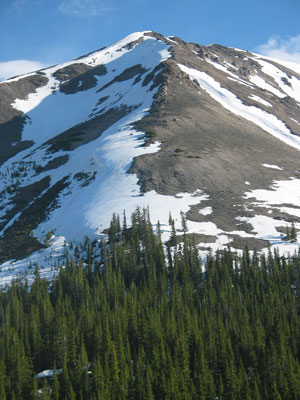All Nonfiction
- Bullying
- Books
- Academic
- Author Interviews
- Celebrity interviews
- College Articles
- College Essays
- Educator of the Year
- Heroes
- Interviews
- Memoir
- Personal Experience
- Sports
- Travel & Culture
All Opinions
- Bullying
- Current Events / Politics
- Discrimination
- Drugs / Alcohol / Smoking
- Entertainment / Celebrities
- Environment
- Love / Relationships
- Movies / Music / TV
- Pop Culture / Trends
- School / College
- Social Issues / Civics
- Spirituality / Religion
- Sports / Hobbies
All Hot Topics
- Bullying
- Community Service
- Environment
- Health
- Letters to the Editor
- Pride & Prejudice
- What Matters
- Back
Summer Guide
- Program Links
- Program Reviews
- Back
College Guide
- College Links
- College Reviews
- College Essays
- College Articles
- Back
Conservancy: Fancy word, why the fuss?
The scientists are rambling, the eco-activists are toiling. Sure, we’re in on the talk about the Earth warming up, the weather running wild, and the pollution targeting innocent civilians. Yet somehow, even a typical teenage girl like me can find it difficult to carry a share of the weight that constitutes this global crisis. After all the effort I put into the projects of my high school’s Sustainability Committee, the bang of environmental threats still sometimes proves too dense for my sensibilities to hold. But my attitude at times may just be the mirror image of the mentality of so many others. We may sight the signs of a changing world from time to time, but when we aren’t in the line of sight of any raging hurricane, our lungs do not face insidious gases on a daily basis, and our lives are surrounded by normality and cleanliness, wouldn’t our instincts by consequence assure us that the world is in safe hands?
Now, this is not to say that virtually no one deals with the rising dangers of our planet’s environment in extremity. Many do. We learn about them, we hear about them, and sometimes, we even bear witness to their horrors through such mediums as the TV. And some of them may read this article, too. But the throng of individuals that dwell on the opposite end of the spectrum swells without boundaries; this is the very throng that looks through the thinly transparent barrier that divides the spectrum and into a sphere of awareness. We see a change in the global situation, but glued to the rhythm of our own lives, we are incapable of stretching through the barrier and testing the reality of the other side.
Maybe we are not to blame. But the scale of such problems remains as infinite as it is remote. A lot of people have a difficult time trying to correlate their individual contributions to the solution of a worldwide predicament. So how do we reconcile the small differences with the big?
This connection must derive from an intuitive understanding of the nature of benefits. Yes, even I know such perspicacity is hard to achieve. If throngs of people wallow in the shower for an excessive period of time, turn on the heater when they can put on a sweater, and throw recyclable materials into the trash, they do so because humans are organically wired towards maximizing their comfort, or in other words, amplifying their short-term benefits. Driven to conserve our own energies, we forget about the bigger picture: conservation of the planet.
If we can train ourselves to project our awareness into the future and place the long-term benefits before the short-term, then recognizing humanity’s higher priorities will become second nature. This technique is analogous to the self-restraint practiced when abstaining from junk food. As long as we look through a bag of chips and recognize the demons that hide amidst the delight, then the discovery of long-term repercussions becomes the immediate, punctual warning that salvages us from paying the price in the future.
Our attitude should remain similar toward the greater purpose of ecological health. Once we perceive the vices hidden in the interstices of the fabric of human laziness, we will tear the fabric to bits and thrive forever free from a looming murkiness that would otherwise consume us.
If every person in the world were to overcome this mortal barrier, mankind itself would be blown by the mind-boggling proportions of the impact of its collective contribution. The true meaning of what it means to respect our one and only home (for the time being, at least) would flood into our grasp. We would not merely know of the importance of a movement to dispel the threats facing Mother Earth; we would become the movement. By making the simple choice to work for the future, humanity would finally experience the power of change.

Similar Articles
JOIN THE DISCUSSION
This article has 0 comments.
